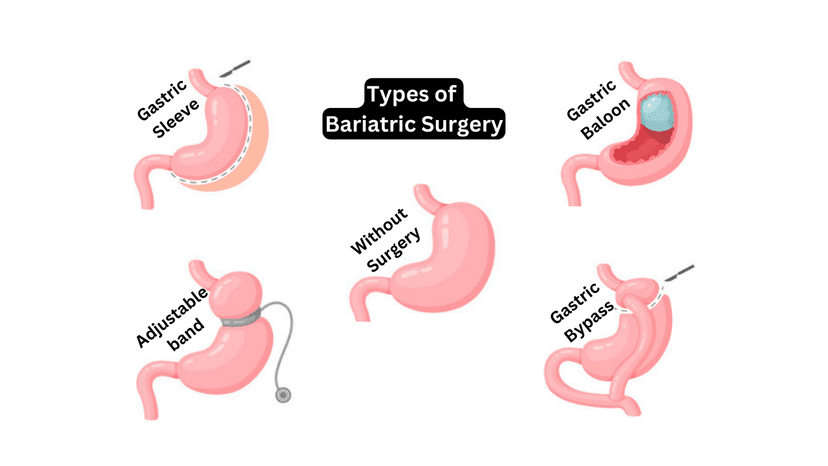Building a Support System: Finding a Community After Bariatric Surgery

The Importance of Support Post-Bariatric Surgery
A pivotal element in the journey of any individual who has undergone bariatric surgery is a robust, compassionate, and understanding support system. Bariatric surgery is not merely a physical transformation; it simultaneously requires profound mental and emotional adjustments as well. Hence, traversing through this challenging landscape alone can be detrimental to the patient's recovery and success. Instead, the process should ideally be complemented by the presence of a reliable and supportive network of healthcare professionals, family, friends, and peers who have undergone similar paths.
Understanding the Role of Support in Recovery and Success
The path to recovery post-bariatric surgery is arguably as challenging, if not more, as the decision to undergo the surgery itself. This period is characterized by significant lifestyle modifications, novel dietary requirements, physical discomfort, and potential emotional upheaval. It is in these phases when a strong support system emerges as a lighthouse, aiding the patient to navigate through the storm.
Healthcare professionals, primarily the operative surgeons, dietitians, and therapists, contribute immensely to a patient’s recovery. Their expertise guides the physical recovery and ensures the new dietary needs are met effectively while avoiding any complications. Emotional back up from family, friends, and therapists can provide moral support, fostering positivity, and motivation.
Moreover, finding solace in people who have traversed the same journey in the past can provide an empathetic platform for sharing experiences, coping strategies, and incessant encouragements thereby making this rugged journey seem achievable.
Benefits of a Diverse Support Network
The ramifications of having a multifaceted support network are multifold:
- Healthcare professionals can precisely address the physical alterations and prescribe ways to cope and overcome these changes effectively.
- A balanced diet, curated under the supervision of a dietitian, can aid in optimal healing and long-term well-being.
- Friends and family can provide constant emotional reassure, while helping maintain new routines and habits.
- Interactions with fellow bariatric surgery recipients can act as mirrors reflecting their journey, thus reaffirming that the challenges faced are normal and surmountable.
Challenges Addressed by Effective Support
Addressing the physical, emotional, and social challenges that accompany this profound journey can be made mitigatable with a strong support system. Here are a few examples:
- Healthcare professionals can address post-surgical discomfort and complications, paving the way to quicker physical recovery.
- The drastic dietary transformations can seem less daunting under the guidance of a skilled dietitian.
- Emotional distress, such as anxiety and depression, are common companions of such surgical procedures. They can be significantly dissuaded by frequent and validating interactions with therapists, family members, and friends who understand the journey.
- A shared community can act as a solidary force, aiding collective coping and success.
In conclusion, the indispensable role played by a comprehensive support system in the successful rehabilitation post-bariatric surgery cannot be overstressed. Creating, maintaining, and nurturing this unit might hold the key to unlocking a healthier and happier future post-surgery.
Finding and Building Your Community
Following bariatric surgery, building a supportive community can significantly impact your recovery, ongoing health, and overall well-being. Knowing this, a key component of your post-surgery strategy should be finding and engaging with communities and support groups. Such groups offer a welter of benefits, from shared experiences to advice on overcoming common challenges after bariatric surgery.
Identifying Supportive Communities and Groups
The first step is to identify suitable communities. Consider those specifically tailored for individuals who have undergone bariatric surgery. Hospitals and clinics often have information about local support groups, so these are excellent starting points.
Remember that the most beneficial community for you might not necessarily be the first one you encounter. Consider multiple options and attend a few meetings before settling on a group that you feel most comfortable with.
When assessing the suitability of a community, keep these considerations in mind:
- Size of the group. Smaller groups might offer more personalized support whereas larger groups may provide a broader range of experiences and perspectives.
- The nature of the discussions. Are they focussed on post-operative care or the full scope of life after bariatric surgery, food, exercise, mental health, body image?
- Professional involvement. Does the group have a professional facilitator or the involvement of healthcare professionals?
- Active participation. Are members actively engaged in sharing their experiences and supporting each other?
By keeping these points in mind, you should be able to find a community that aligns with your needs.
Engaging in Online Forums and Social Media Groups
In today's digital world, you have access to a vast array of online communities. These platforms offer the convenience of being able to communicate, share experiences, and receive support without leaving your home.
From Facebook groups to dedicated online forums, there are countless places where individuals can connect over shared experiences of bariatric surgery. Many find these online spaces convenient and comfortable for openly discussing their experiences and concerns.
However, it's essential to distinguish between trustworthy and not-so-credible sources online. Always look out for groups that are moderated by professionals or trusted entities in the realm of medical or surgical support groups.
Participating in Local Support Meetings and Events
While online communities offer convenience, local support meetings and events bring the value of real-life, human interaction. Being physically present with others who have undergone a similar journey can foster a strong sense of empathy, understanding, and mutual support.
Local support groups can often be found through healthcare clinics, community centers, or faith-based organizations. Participating in such groups allows you to:
- Share your journey in a safe and supportive environment
- Learn from the experiences of others and gain new insights about living healthily post-surgery
- Develop friendships with those who truly understand your challenges
Furthermore, professional healthcare practitioners often facilitate these meetings, providing an excellent opportunity to learn from their expertise. Don't hesitate to be active in these group settings — regular participation can foster a sense of belonging and contribute greatly to your overall success in post-operative life.
Building a supportive community post-bariatric surgery is a task worth investing your time and effort in. You'll find that the benefits — from shared experiences, to practical advice, to emotional support — will significantly enhance your journey to sustainable health and well-being.
Leveraging Support for Long-Term Success
As you journey through your new lifestyle changes post-bariatric surgery, it is of great value to utilize the strength found in numbers. Being an active part of a support system or community provides a potent source of motivation, accountability, and emotional well-being. To fully tap into this incredible resource, it's crucial to understand how to create long-lasting bonds, share successes and setbacks, and recognize the reciprocal nature of support.
Creating Lasting Bonds and Mutual Accountability
Forming durable relationships within your support system can be a lifeline in your post-bariatric journey. The power of these bonds lies in their potential for mutual accountability. As each member pursues their individual goals, the group evolves into a safe space to stay on track, provide reassurance, and offer guidance.
When engaging with the community, clear and open communication is key. Regularly sharing goals, concerns, and progress updates keeps everyone invested and informed, fostering a collective energy that inspires each member to meet their targets. This ongoing exchange creates a sense of shared responsibility, a common thread for everyone. Within this safe, nurturing space, you can lean on others for support while offering the same in return.
Sharing Successes and Setbacks
An open dialogue about both victories and challenges is a pillar of a robust support community. We all celebrate success, but it is equally important to be forthright about complications and setbacks. Sharing such experiences not only affirms that it's normal to face hurdles but also encourages practical problem-solving within the group.
Being transparent about your journey – the ups and downs, the triumphs and trials – allows others to empathize with you and offer much-needed support. Simultaneously, the communication empowers you to assist others facing similar difficulties, fortifying the bonds within the group and the valuable lessons learnt from individual experiences.
The Reciprocal Nature of Support
Participation in a post-bariatric community is not a one-way street. The benefits emanate from both receiving and giving support - a truly reciprocal process of shared growth and progress. Lending strength to others can often foster personal strength, a beneficial repercussion of empathy and understanding.
Being engaged with the struggles and victories of everyone in the group, offering advice and emotional support, even simply listening, can be a massive step in your own growth. It not only reinforces your understanding of the challenges and strategies involved in the lifestyle change but also nourishes your sense of purpose within the community. This interplay of support and growth solidifies the group's resilience and sets the stage for sustained success.
The aforementioned points illustrate how leveraging support within a community can significantly positively impact your journey towards a healthier, happier lifestyle. By nurturing these relationships, openly communicating, and understanding the reciprocal nature of support, you can unlock the full potential of community support towards your long-term success post-bariatric surgery.
In Summary
This blog post highlighted the pivotal role of a support system in the journey of an individual post-bariatric surgery. It emphasized that bariatric surgery is not just a physical transformation but requires comprehensive mental and emotional adjustments as well.
The presence of a diverse support network, consisting of healthcare professionals, family, friends, and peers who have undergone the same journey, can significantly aid in navigating this challenging period. Each segment of this network contributes distinctively, addressing physical, emotional, and social challenges.
An elaborate support system can ameliorate post-surgical discomfort, help navigate the new dietary needs, provide emotional reassurances and establish affirming encounters on shared platforms, thus making the journey seem more achievable.
The post then focused on the aspect of finding and building your community. Locating networks specifically tailored for individuals who have undergone bariatric surgery, and engaging in online forums as well as local support meetings can foster a heightened sense of empathy, understanding, and mutual support.
Lastly, the post emphasized the importance of leveraging support for long-term success. Participating actively within a support group can create lasting bonds, enable sharing of successes and setbacks, and recognize the reciprocal nature of support.
Plan of Action to Implement it
The information provided in the blog should be implemented in a step-by-step, sequential manner:
-
Understand the importance of a support system: Recognize that the journey through bariatric surgery does not end with the procedure - it begins anew, necessitating a comprehensive, multifaceted support system.
-
Identify your support system: Identify the possible anchors within your environment – healthcare professionals, therapists, dietitians, family, friends, or peers who’ve experienced a similar journey – and nurture these relationships.
-
Find your community: Seek communities specifically tailored for individuals who have undergone bariatric surgery, explore both local and online support networks, and find a forum where you feel most comfortable.
-
Engage with your community: Once identified, actively participate in the community, openly share your experiences, gain from others’ insights, foster relationships, and offer and receive support.
-
Leverage your support network for long term success: Cultivate your relationships within the support community, share your successes and setbacks, extend and accept support, and understand the reciprocal nature of working as a collective.
Action Steps
- Step 1: Recognize the need for a comprehensive network -- both in terms of professional healthcare aid and emotional morale boosters.
- Step 2: Identify and bond with healthcare professionals, therapists, dietitians, family, friends, or peers who’ve experienced a similar journey.
- Step 3: Actively seek communities tailored for individuals who have undergone bariatric surgery, explore both local and online support networks.
- Step 4: Actively participate in the chosen community, engage in open discussions, cultivate relationships and contribute collectively towards shared goals.
- Step 5: Constantly maintain an open dialogue about your journey, share your successes and setbacks, and extend and receive support within your community.
- Step 6: Action steps should be revisited and adapted to your pace and comfort, ensuring a sustained commitment to your new lifestyle post-surgery.

